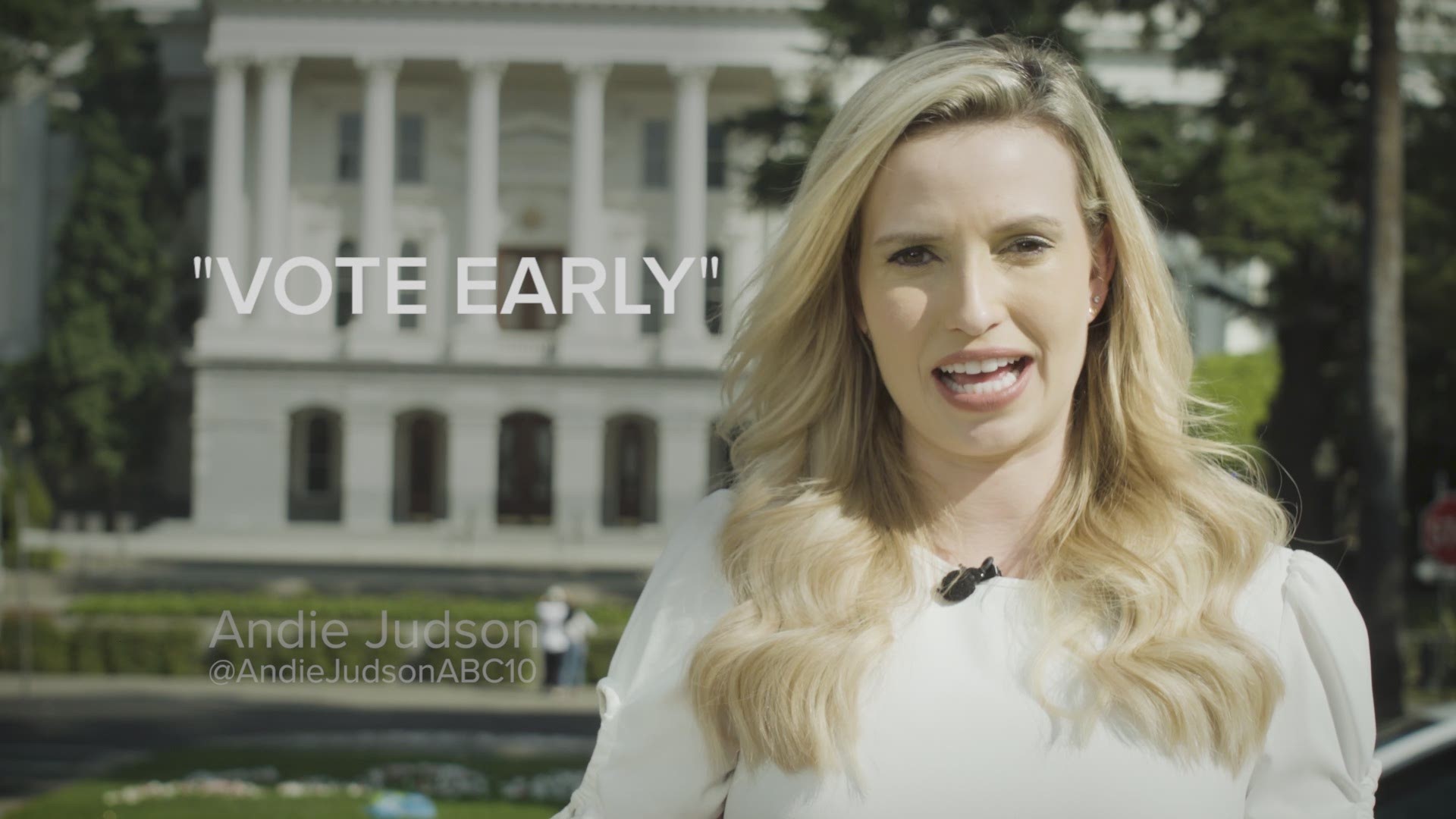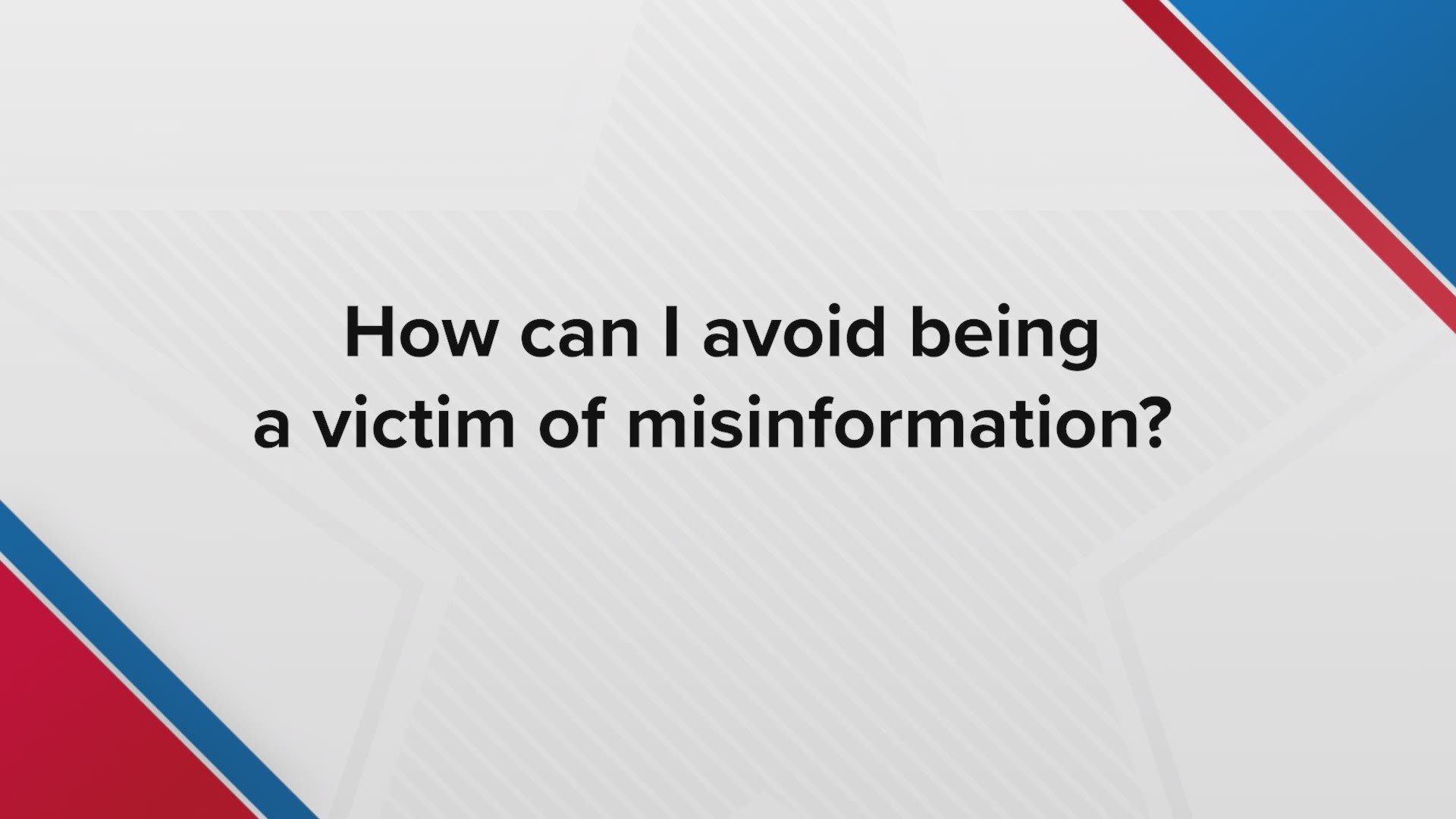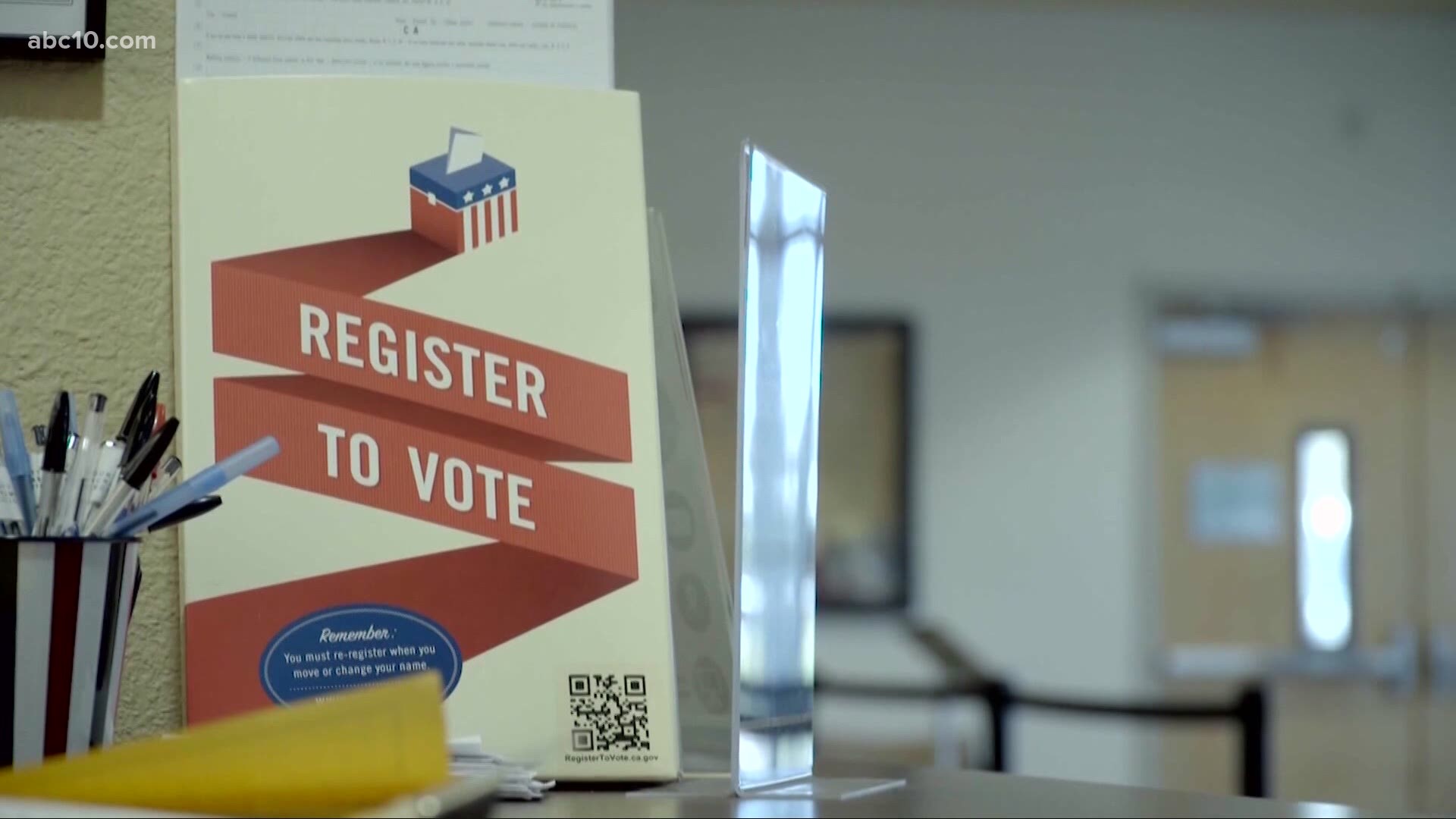CALIFORNIA, USA — Tuesday, Nov. 3 is Election Day and ABC10 has put together everything you'll need to know for when you head to the polls or mail in your ballot.
The November General Election coincides with some new laws, an executive order, and a pandemic that could change the way some people vote.
From local contests to a Presidential race, the ballot will be crammed with no shortage of candidates, propositions, and measures.
Who can vote in California
You can vote in California if you meet the following requirements:
- Be a United States citizen and a resident of California
- Be 18 years old or older on Election Day
- Not currently be in state or federal prison or on parole for the conviction of a felony
- Not be currently found mentally incompetent to vote by a court
Register to vote
To register to vote or to check your registration status, you can click HERE.
You can generally find a paper voter registration application at a DMV field office, post office, public libraries, government offices, or the county election office. To have one mailed to you, you can call 800-345-VOTE or email the elections division staff.
WATCH: How to fill out a California voter registration card
Absentee & vote-by-mail ballots
Per an executive order from Gov. Gavin Newsom, every voter will get a vote-by-mail ballot before the Nov. 3 election.
This year will also see Assembly Bill 49 shine a little brighter for the Presidential Election. The law requires vote-by-mail ballots to be mailed no later than 29 days before an election and require that mailing to finish up in five days.
Ballots can cast in several ways: by mailing it to the county elections officials, returning it in-person to a polling place, dropping it into a county ballot drop box, or by authorizing someone to return it on your behalf and filling out the authorization section on the outside of the ballot envelope.
You won't need a stamp to mail your ballot. AB 216 required all vote-by-mail ballot return envelopes have prepaid postage. It's been in effect since January 2019.
If you want to keep tabs on your ballot, you can track when it gets mailed, received, and counted. You can sign up HERE.
Lost your ballot?
If you didn't get your ballot or if it was lost or damaged, you can contact your county elections official to get a second one.
Key dates and times
Election Day: Nov. 3, 2020
Poll hours: 7 a.m. to 8 p.m.
When to register: You must register online or have your registration postmarked by Oct. 19. California also has Conditional Voter Registration which allows you to "conditionally" register and vote at your county elections office, polling place, or vote center after the deadline.
Last day to request Vote-By-Mail: The request must arrive by Oct. 27, 2020
Personally delivered completed ballot drop off: Personally delivered ballots must be dropped off by close of polls on Nov. 3.
Mailed ballots: Mailed ballots have to be postmarked on or before Nov. 3 and received no later than Nov. 20.
Early voting in person: Some counties offer early voting at a few spots before election day. You'll need to contact the county elections office to see if it is offered. The link to the early voting locations from the Secretary of State's Office is not yet available.
WATCH: The key dates to know:
Where is my polling place?
*Some counties might not have their polling places available at the time of publication.
Plumas County - All mail ballot election
Sierra County - All mail-in ballot election
WATCH: How to spot and avoid misinformation ahead of the election:
What you'll need at the polls
In most cases, California voters won't need to show ID in order to vote at their polling place.
However, according to the California Secretary of State's Office, there could be a caveat for first-time voters. If a first-time voter didn't provide a driver's license number, California identification number, or the last four digits of their social security number on their registration form, they might need to bring identification to their polling place or send a copy of it with their vote by mail ballot.
ID can be a copy of a recent utility bill, the county voter information guide you got from your elections, office, or another document sent by a government agency. A passport, driver license, California ID, and student ID cards are good too.
Watch: Voting FAQ:
How to report voting problems?
California has a hotline available for voting-related questions, requests for mail delivery of a voter registration form, a vote-by-mail application, and requests for the Official Voter Information Guide.
A full list of hotline numbers in various languages is available HERE.
Also, if you believe you've witnessed a voting crime or believe you're a victim of election fraud, you can send a complaint to the Office of the California Secretary of State.
You can find the form HERE.
WATCH: Election 2020: How to make sure your ballot is counted:




